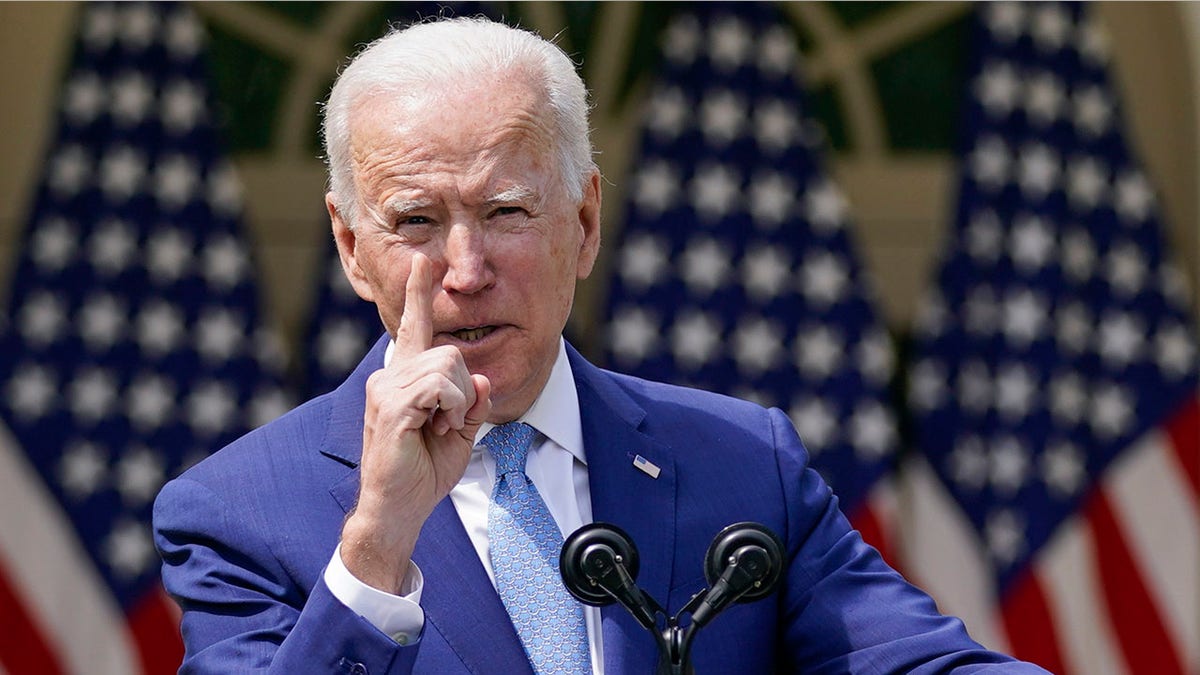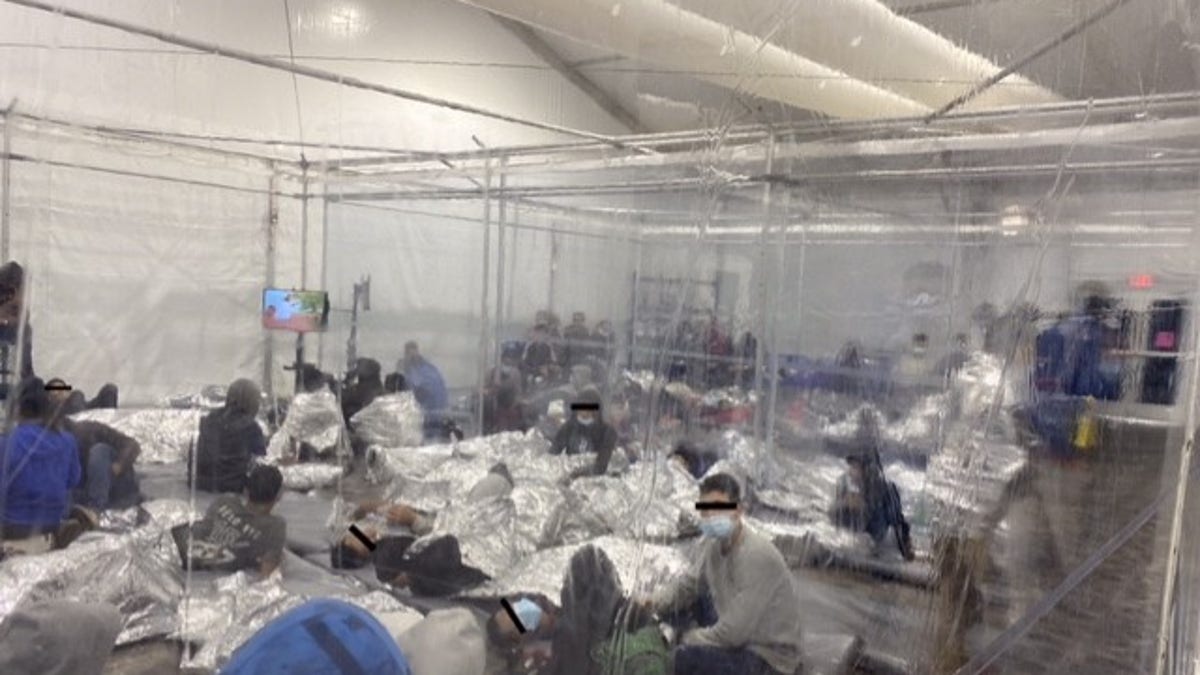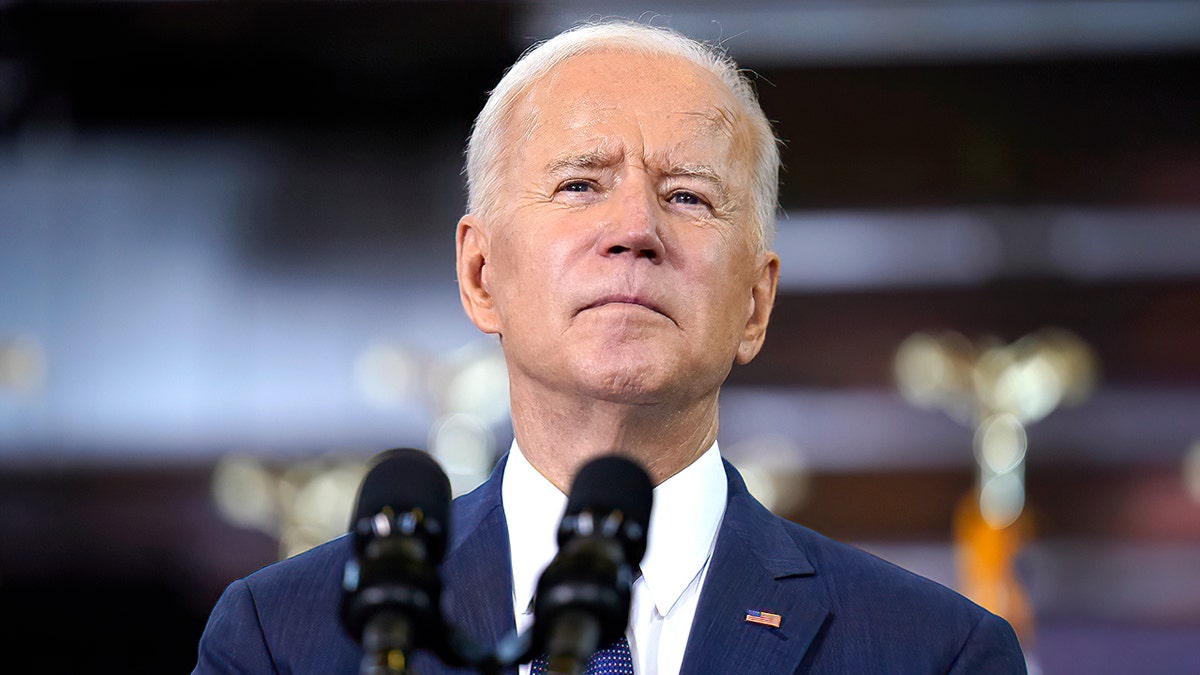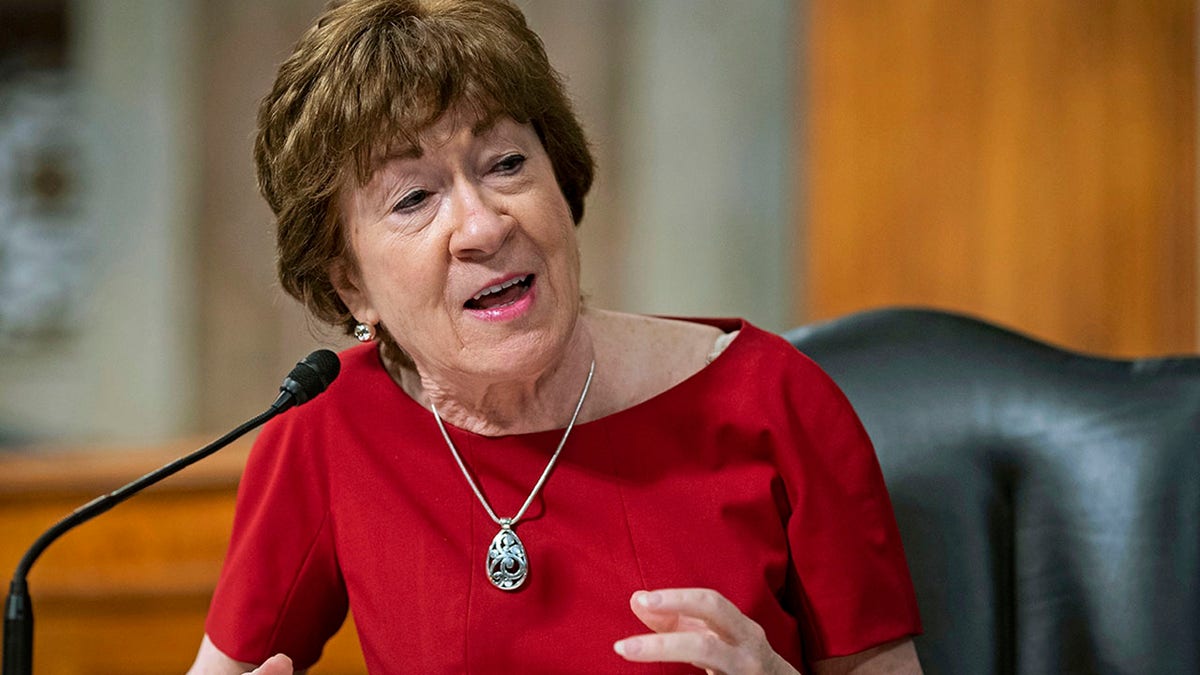Biden's presidency will be most scripted, least transparent of modern TV era: Concha
Fox News contributor Joe Concha reacts to President Biden remarking he'll be in 'trouble' for taking questions from the press.
President Biden Thursday reached the 100th day of his presidency, an unofficial benchmark often used to reflect on how well a president is adjusting to his new office and whether he is fulfilling his campaign promises.
Biden's administration has gotten off to a fast start on a number of fronts. He proposed approximately $6 trillion in spending in three massive packages, issued a flurry of executive orders and has backed a variety of other causes, from D.C. statehood to voting bills.
The new president has had mixed results on many of his promises, with some already fulfilled while others seem permanently stalled.
Here's the status of many of Biden's campaign promises 100 days in.

President Biden speaks about gun violence prevention in the Rose Garden at the White House, Thursday, April 8, 2021, in Washington. Biden has been the president for 100 days. (AP Photo/Andrew Harnik) (AP Photo/Andrew Harnik)
Immigration
Biden moved quickly on immigration, halting funding for the border wall, attempting to freeze deportations (that move was blocked in court), proposing a comprehensive immigration bill and reversing other Trump-era policies by executive order.
BIDEN ADDRESS TO CONGRESS: TOP 5 MOMENTS
But he's struggled to get enough resources to the southern border to improve conditions for migrants, leaving border facilities with a very "kids in cages" look amid a massive surge in border crossings.
Biden further tapped Vice President Kamala Harris to lead efforts on addressing the alleged root causes of Central American migration by working with Northern Triangle countries. She's yet to meet in person with those leaders but has met virtually.
Perhaps most notably, the president is wavering on his promise to increase the refugee cap from its Trump-era level. The White House maintained that Biden would raise the cap, before apparently backtracking, sparking backlash from Democrats on Capitol Hill.

Migrants at a holding facility near the U.S. Southern border being kept in clear enclosures akin to cages. (Office of Rep. Henry Cuellar, D-Texas)
The White House later issued a statement saying that Biden's "initial goal of 62,500" refugees admitted before Oct. 1 "seems unlikely" but that Biden is expected to set a "final, increased refugee cap" before May 15.
No updated cap has been issued yet.
Spending bills
Biden and congressional Democrats forced through a coronavirus stimulus bill earlier this year, ostensibly checking off one of his biggest campaign promises.
But Biden was criticized by the left for allegedly falling short of the $2,000 stimulus checks he proposed on the campaign trail, dispensing only $1,400 in aid per person.
The administration and congressional Democrats said the $1,400 plus the $600 checks former President Donald Trump signed into law shortly before Biden assumed office totaled $2,000. But it still did not satisfy some progressives. Sens. Raphael Warnock, D-Ga., and Jon Ossoff, D-Ga., came under some of the heaviest fire because they campaigned in the Georgia runoffs on $2,000 checks for every American.
They noted that the average family of four would get much more than $2,000 from the stimulus, however.
Biden took criticism from the right on his coronavirus stimulus bill over the fact much of its contents were not about the coronavirus. One provision would have given $112 million toward building a rail tunnel in Silicon Valley.
Biden recently proposed two more spending bills, the American Jobs Plan and the American Families Plan. Those have yet to be drafted but are already getting harsh GOP criticism, and whether they will eventually pass is unclear.

President Biden delivers a speech on infrastructure spending at Carpenters Pittsburgh Training Center, Wednesday, March 31, 2021, in Pittsburgh. (AP Photo/Evan Vucci) (AP Photo/Evan Vucci)
The American Jobs plan is being sold as an infrastructure plan – another Biden campaign promise – but Republicans say most of the bill does not actually address infrastructure.
Climate and energy
Almost immediately after assuming office, Biden revoked the permit for the Keystone XL oil pipeline, fulfilling that campaign promise. He's also convened a summit on climate change, rejoined the Paris climate agreement and much more.
Biden has also imposed an indefinite moratorium on new oil and gas leases on federal lands, half fulfilling his promise to ban new leases, and working on re-implementing many of the climate rules Trump rolled back.
Foreign policy
On the campaign trail, Biden promised to remove American troops from Afghanistan. He pushed back the previous deadline of May 1 to have troops out of the country, but said he is committed to getting them out by Sept. 11.
Biden also said he would stand up to foreign dictators like Russian President Vladimir Putin. The new president has already leveled sanctions against Russia multiple times and engaged in tough talk, calling Putin a "killer" and saying he would hold the Russian government responsible for the health of dissident Alexi Navalny.
Secretary of State Antony Blinken also took part in a combative meeting in Anchorage, Alaska, with his Chinese counterpart.
Biden said he would quickly rejoin the nuclear deal with Iran negotiated by former President Barack Obama but abandoned by Trump. He has yet to do that, and matters have been complicated by the kind of continued misbehavior by Iran that Trump cited in leaving the deal.

Russian President Vladimir Putin attends a meeting with young award-winning cultural professionals via video conference, at the Kremlin in Moscow, Russia, Thursday, March 25, 2021. (Alexei Druzhinin, Sputnik, Kremlin Pool Photo via AP) ((Alexei Druzhinin, Sputnik, Kremlin Pool Photo via AP))
TED CRUZ: 'BORING BUT RADICA:' BIDEN 'HANDED PARTY OVER' TO BERNIE, WARREN AND AOC
Biden also recognized the Armenian genocide, fulfilling a campaign promise but angering strategic ally Turkey. Previous presidents have been reluctant to do so for fear of upsetting Turkey.
Miscellaneous
Biden rejoined the World Health Organization; exceeded his goal of getting 100 million vaccine doses delivered, which many criticized as a low bar given the rate of vaccinations under Trump; issued a mask mandate on federal property; and extended the eviction moratorium.
Biden promised to expand voting rights with a handful of bills, and supported D.C. statehood during the campaign. Many of these issues are gummed up in Congress thanks to unified Republican opposition.
Biden also issued an executive order to study court-packing, among other judicial reforms, as he promised he would do during the campaign. But Biden has still not told voters where he stands on court-packing after saying he would reveal his opinion on the issue after the election.
Bipartisanship
While Biden has met some of his campaign promises and is either struggling to meet or failed to meet others, he's made at least some effort at most of them in a busy first 100 days.
Perhaps where he's fallen most glaringly short is the issue of bipartisanship.

In this June 30, 2020, file photo, Sen. Susan Collins, R-Maine, speaks during a Senate Health, Education, Labor and Pensions Committee hearing on Capitol Hill in Washington. Collins running for reelection to represent Maine in the Senate in the Nov. 3 general election. (Al Drago/Pool via AP, File)
There were no Republican votes for Biden's coronavirus stimulus bill. The president did meet with a group of 10 Republicans to hear their stimulus proposal. But his administration dismissed it as "a package that fails to meet the moment" and did not even provide a counteroffer. Democrats simply moved ahead under a process called budget reconciliation that circumvents the Senate filibuster, effectively cutting Republicans out.
Biden weeks later said Republicans "didn't move an inch" in coronavirus negotiations, triggering a scathing statement from a group of moderate Republicans led by Sen. Susan Collins, R-Maine.
"In good faith, our group of 10 Republicans worked together to draft a sixth COVID-19 relief package earlier this year. Our $618 billion proposal was a first offer to the White House designed to open bipartisan negotiations," the statement said.
"The administration roundly dismissed our effort as wholly inadequate in order to justify its go-it-alone strategy," it added.
The Republicans continued: "Fewer than 24 hours after our meeting in the Oval Office, the Senate Democratic leader began the process of triggering reconciliation, which precluded Republican participation and allowed for the package to pass without a single Republican vote."
CLICK HERE TO GET THE FOX NEWS APP
The White House said it is willing to negotiate with Republicans on Biden's American Jobs Plan but there's been little if anything in the way of substantive talks.
And lacking GOP support for its key initiatives, the White House has taken to redefining the word "bipartisan."
"If you looked up 'bipartisan' in the dictionary, I think it would say support from Republicans and Democrats," senior Biden adviser Anita Dunn told the Washington Post. "It doesn't say the Republicans have to be in Congress."
Biden senior adviser Mike Donilon said the president's new definition of "bipartisan" is "an agenda that unifies the country and appeals across the political spectrum."
The Associated Press contributed to this report.






